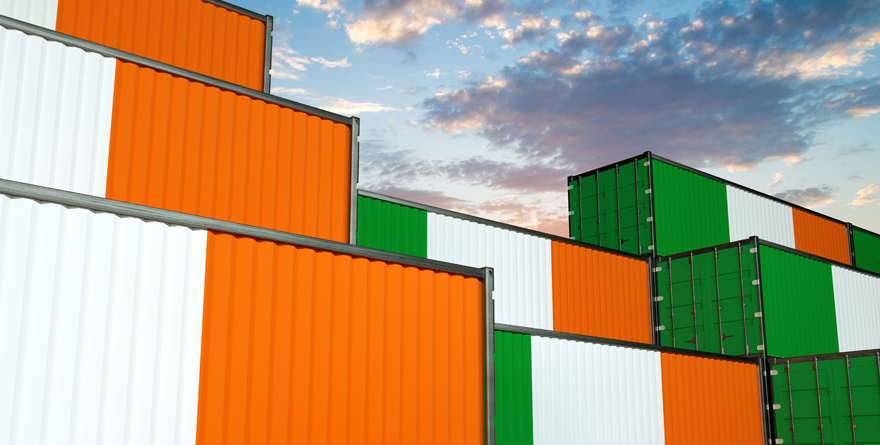Understanding the Northern Ireland Protocol
Understanding the Northern Ireland Protocol – Shipping Goods from GB to NI. During negotiations, the EU and UK agreed to a Northern Ireland Protocol that there would be no new checks on goods crossing the border between NI and the Republic of Ireland (ROI).
The protocol aims to:
- Avoid a hard border between NI and the ROI
- Make sure of the integrity of the EU’s single market for goods
- Facilitate unfettered access for NI goods to the GB market, and the inclusion of NI goods in free trade agreements between the UK and third countries
As a result of the protocol, NI has in effect remained in the EU’s single market for goods (England, Scotland and Wales have left the EU’s single market for goods).
This allows goods to flow to and from NI to the ROI and the rest of the EU as they did while the UK was a member of the EU, without customs checks, tariffs or new paperwork.
The EU’s rules on customs and regulation of agri-food products will continue to apply to goods arriving in NI.
SHIPPING GOODS FROM GB TO NI
All goods moved from GB to NI will require both an entry safety and security declaration (ENS) and an import declaration. A record of the movement will also need to be made on the Goods Vehicle Movement Service (GVMS), where the port is operating the pre-lodgement model.
No export safety and security (EXS)/export declaration is required in GB for GB to NI movements.
All goods will be subject to EU regulatory standards, which may be applied through the Tariff. Goods will only be required to pay customs duty at the EU rate if they are classed as ‘at risk’. Goods will not be subject to import VAT, but excise may be due.
If the goods are UK domestic goods, either by origin or previous release to free circulation, and are not ‘At-Risk’, then they will not be subject to customs duty or any other duties or import VAT (see ‘Excise’ section).
Goods that are not UK domestic goods will be treated as RoW movements into NI.
Whilst HMRC expects CDS to be used for the majority of NI traffic, CHIEF may be used for a limited period of time for the following movements:
- RoW-NI movements
- RoW goods moving to NI from GB that do not have UK domestic status
CHIEF must not be used for GB-NI or NI-GB movements of goods that have UK domestic status. Please see the information in Part 2 of the NI Supplement for the CHIEF specific declaration completion instructions.
VAT ON GOODS SOLD BETWEEN GB AND NI
VAT will continue to be accounted as it is currently on goods sold between GB and NI. This means that the seller of the goods will continue to charge its customers VAT and should show this on its invoices. The VAT charged will be accounted for as output VAT on the VAT return in the same box as it is now. The seller will not be able to claim this back as input VAT.
Where the customer receives an invoice from the seller showing that VAT has been charged, it may use this as evidence in order to reclaim the VAT as input VAT, subject to the normal rules.
Need Help?
Does all of the above sound a bit worrying? Thankfully, Uneek Group has you covered. At Uneek Group we have unprecedented experience in importing, freight forwarding and EU Customs Declaration.
Through our London Warehousing facilities, we are able to provide an efficient and cost-effective service that is driven by technology to meet your warehousing needs. With 80,000 square feet of space across both of our London Warehousing sites and with one site situated next to Heathrow and the other conveniently situated on A13, offering fast access to central London, M25, London Gateway and other major road networks.
[email protected] / +44 (0) 20 8984 0425
Uneek Forwarding is part of the Uneek Group Ltd

